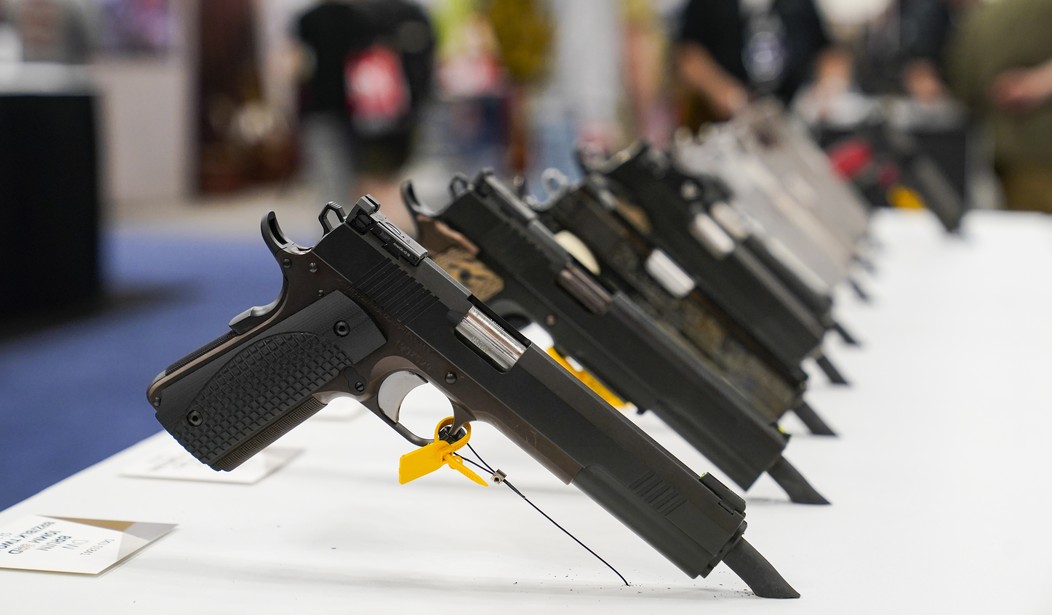The permit-to-purchase law has gained some ground, in one form or another, in several states lately. Previously pro-gun Maine has one, though it's held up by the courts, and Colorado's new semi-auto ban uses the permit-to-purchase formula to make it far more difficult for anyone to comply.
But they don't outright ban anything.
That raises questions.
See, Colorado Gov. Jared Polis has long been resistant to gun bans, but he signed this because it's different. It's not an outright ban, even if it's effectively one for many people.
Is this constitutional, though?
While my initial answer is to just say that no, it's not, that's because that's my reaction to any gun control law. But what about from a legal standpoint?
Well, paralegal Alan J. Chwick took up that question over at Ammoland.
Illegal “gun violence” in the United States is an issue, prompting lawmakers to explore various strategies for regulation, regulations that usually affect law-abiding citizens more than the criminals.
Among these regulations, Permit-to-Purchase (PTP) laws have emerged as a means to screen and delay prospective gun buyers. These laws require individuals to undergo multiple(in the case of NJ & NY) background checks, and sometimes safety training or other procedural requirements, before acquiring a firearm. While proponents argue that such laws help reduce “gun violence” and suicide rates, critics assert that they place uncontitutional burdens on law-abiding citizens and violate Second Amendment (2A) protections, plus there is already a Federal background check system NICS in place for retail purchases. The constitutional debate gained new momentum after the Supreme Court’s 2022 ruling in Bruen, which shifted the legal framework for evaluating gun regulations.
Permit-to-Purchase permission-slip laws exist in several states, including Connecticut, Massachusetts, New Jersey, and Hawaii, and these laws vary in scope and requirements, but typically require an applicant to:
- Submit an application with personal information.
- Pay a non-refundable fee,
- Undergo a background check that sometimes has an additional fee.
- Sometimes, it requires fingerprints, which may incur another fee.
- Complete firearms safety training, which may also incur another fee.
The intention behind these laws is to ensure that only individuals who meet specific “approved” criteria, such as not having a criminal background or a history of mental illness, can legally purchase firearms. Though studies suggest that states with PTP laws have lower rates of gun-related deaths (Kaufman et al., 2015), it’s again IMPORTANT to point out that gun dealers are REQUIRED to do a Federal background check (NICS E-Check), so what is the real purpose of the state PTP? And could the NICS Check be the actual reason for the lower rates?
I'd point out that we've seen the problems with this particular study. Cam talked about it a few years back, in fact, and the study was manufactured, basically.
And honestly, I'm never going to get tired of pointing that out, especially as it debunks a very popular study with the anti-gun crowd.
Now, with that said, Chwick talks about Heller, McDonald, and Bruen, which I'm not going to rehash, before getting into the meat of the discussion.
So, currently, the constitutionality of PTP laws hinges on whether historical analogs can be identified, as per Bruen, and the Bruen ruling emphasized examining historical regulations from the time of the Founding Fathers. While no direct PTP laws existed in the 18th century, there were, however:
- Surety laws, which required individuals suspected of carrying weapons to post a bond.
- Militia laws, which required individuals to report for training with their firearms.
- Prohibitions on arming certain groups, such as felons or those deemed dangerous.
Proponents of PTP laws argue that these historical practices support the idea of regulating who can possess firearms, thereby justifying modern permitting schemes.
Now, thanks to Rahimi, these might be close enough for the courts to side with the permit-to-purchase laws.
It doesn't actually make them constitutional, but it will potentially lead to an interpretation by the courts saying they are, which is about the same thing as far as any practical difference goes.
Yet I'm not sure they will.
Surety laws are more akin to a concealed carry permit than any permit-to-purchase, which regulates all firearm purchases. Prohibitions on certain groups having guns are kind of what we have now with felons, but it should remember that these laws were also racist as hell back in the day.
Militia laws requiring specific training might justify mandatory training requirements in the eyes of the courts, but they don't quite go so far as to require a specific permit to own a gun.
I get that the analog doesn't have to be one-to-one, but all three of these seem to be too much of a stretch, even under Rahimi.
Especially when permit-to-purchase laws also amount to poll taxes on gun sales. That's not remotely a stretch to see, considering the permits aren't free and there's no means to get one unless you've got the cash.
What will the courts decide?
Who knows.
I just know that as far as I'm concerned, there's only one answer.








Join the conversation as a VIP Member